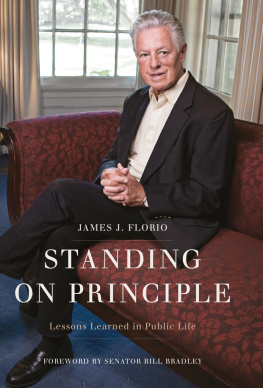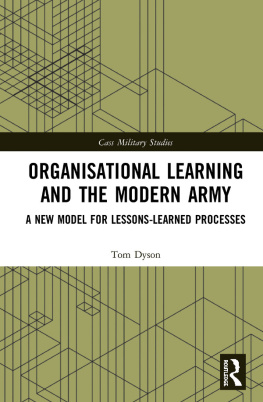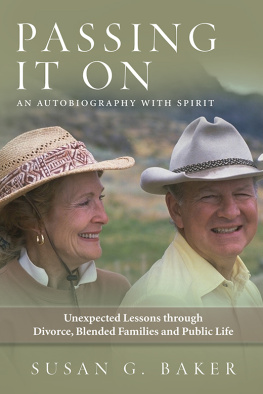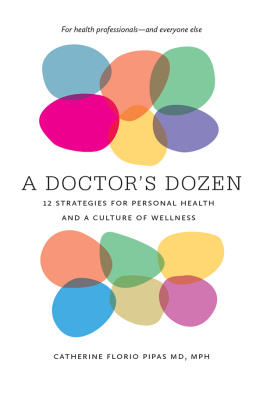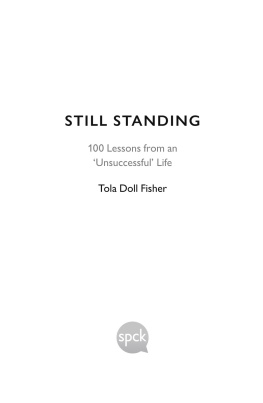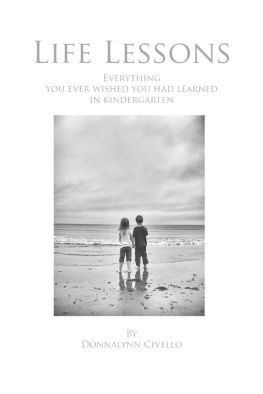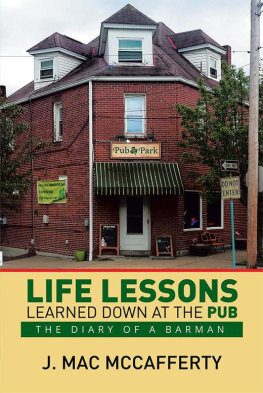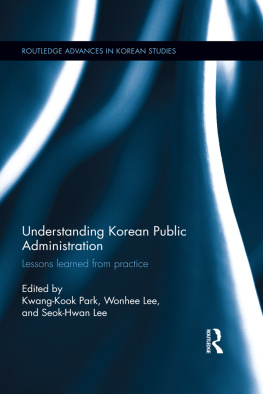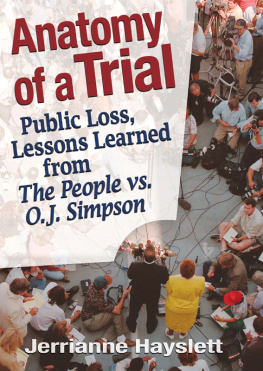Standing on Principle
Lessons Learned in Public Life
J AMES J. F LORIO
Foreword by Senator Bill Bradley
RUTGERS UNIVERSITY PRESS
NEW BRUNSWICK, CAMDEN, AND NEWARK,
NEW JERSEY, AND LONDON
Published in cooperation with the Center on the American Governor, Eagleton Institute of Politics, Rutgers University
A Cataloging-in-Publication record for this book is available from the Library of Congress.
A British Cataloging-in-Publication record for this book is available from the British Library.
978-0-8135-9430-9
978-0-8135-9429-3
978-0-8135-9431-6
978-0-8135-9433-0
Copyright 2018 by James J. Florio
All rights reserved
No part of this book may be reproduced or utilized in any form or by any means, electronic or mechanical, or by any information storage and retrieval system, without written permission from the publisher. Please contact Rutgers University Press, 106 Somerset Street, New Brunswick, NJ 08901. The only exception to this prohibition is fair use as defined by U.S. copyright law.

The paper used in this publication meets the requirements of the American National Standard for Information SciencesPermanence of Paper for Printed Library Materials, ANSI Z39.48-1992.
www.rutgersuniversitypress.org
Manufactured in the United States of America
This book is dedicated to my grandchildrenMatthew, Chelsea, Alexandra, Elizabeth, Peter, Victoria, Stephanie, Jack, Bret, and Troyso they will know what their Pop Pop did.
Contents
Senator Bill Bradley
Jim Florio has always been his own man. He was a politician whose strength was rooted in substance. He cared about ideas. He cared even more about policy and good government, from his work on the initial Superfund Bill to clean up toxic wastes, to economic development strategies during his time as governor. He always thought of the long term, a very rare political trait.
In my first campaign for the Senate, he was part of a very smallvery small!group of New Jersey political leaders who endorsed me in the primary. For that, I am forever grateful.
He built a strong organization in South Jerseyone that was independent of the county organization. He had a loyal following among young people, who admired his idealism; among the business community, who appreciated his openness; and among the public, who felt his compassion. He led by example. No one was going to outwork him and all knew that as a former boxer he could take a punchand give one.
While his service in the Congress was admirable, being governor is where he left his biggest mark. New Jersey has had a continuing fiscal crisis for many decades, with the issue of taxes and spending at the core of any state politicians career.
Most politicians get state money in three ways: they either raise taxes to fund commitments, especially in transportation, education, pensions, and health; they borrow money so they can keep those commitments; or in the case of pensions, they make rosy assumptions about pension fund investment performance, thereby freeing up money to spend that should be going to shore up our solemn commitments to working people.
Jim Florio was different. He saw that he had a budget problem. He cut spending and found it did not close the budget gap enough. He then raised taxes, which outraged the public, which ignored the benefits it derived from government. He was castigated and demonized by political opponents and even the press. But those who opposed him offered no alternative, and post-Florio the New Jersey financial circumstance has only gone downhill. It is always easier to pass the problem on to the next governor. Jim Florio and Harry Truman agreedthe buck stopped with the leader. Many politicians run away from that thought. Jim faced it.
The gauge of fiscally responsible government in this regard is found in the states bond rating. If there are giant gaps in funding for pensions and health care and other spending, bond ratings drop. If bond ratings drop, the state will have to pay more in interest. Its a very simple proposition: pay now or pay more later. One of the most telling details about Jim is that he had the highest bond rating of any governor of New Jersey in the last thirty years. But then, he had raised taxes, paying the price that real leaders are prepared to pay to secure the future of their state.
I think history will be very kind to Jim Florio. Hes a man who made the tough choices and lived to take pride in them. I hope when people finish this book that theyll see the full dimension of his leadership and come to admire the man even more.
Maybe the best way to explain what I want this book to be about is to first describe what it isnt about.
This book is not a compendium or recitation of facts about my public career. That information can be found in the 600+ cases of documents in the State Archives in Trenton that contain the exhaustive details of my four-year gubernatorial term; in references in the Library of Congress to the 400+ pieces of major legislation in which I was intimately involved during my fifteen years in the House of Representatives; and in the Eagleton Institute of Politics remarkable Center on the American Governor series, which has compiled more facts and information about me than could ever be condensed into a single book.
This is also not a tell-all book. I met many fascinating political characters, both good and bad, during my decades in public office. Many life-changing issues and events occurred between my first campaign for the New Jersey General Assembly in 1969 and my last campaign for the U.S. Senate in 2000. But there are no political scandals or secrets to tell of in my own lifealthough there are, up front, two facts in my private life that even some of my closest friends and associates may not be aware of: (1) my younger brother Bill was gay, and he died of AIDS in 1991; and (2) my father Vincenzo, after being diagnosed with a terminal illness and fearful that the enormous monthly out-of-pocket pharmaceutical expenses he was bearing would leave my mother penniless, committed suicide.
Both of these events hit me hard. Ive never talked openly about themI felt they were intensely private mattersbut Ive thought a lot about how my brother had to live in the shadows for so much of his life and how societys slowness to accept the LGBTQ lifestyle allowed the AIDS epidemic to spread unchecked for so many years before researchers developed effective treatment. And Ive thought about how unfair it is that the richest country on earth still thinks of health care as a privilege rather than a right, forcing people like my father to choose between a life of poverty or self-inflicted death.
This book is about the major public issues and battles of my life, first as an elected public officeholder for nearly a quarter-century, and subsequently as a teacher for nearly the same length of time at the college level. If there is a confession to make, it is that I am a dedicated policy wonk. And the issues that were important to me at the beginning of my public life are just as relevant and challenging today as they were nearly fifty years ago.




 The paper used in this publication meets the requirements of the American National Standard for Information SciencesPermanence of Paper for Printed Library Materials, ANSI Z39.48-1992.
The paper used in this publication meets the requirements of the American National Standard for Information SciencesPermanence of Paper for Printed Library Materials, ANSI Z39.48-1992.
